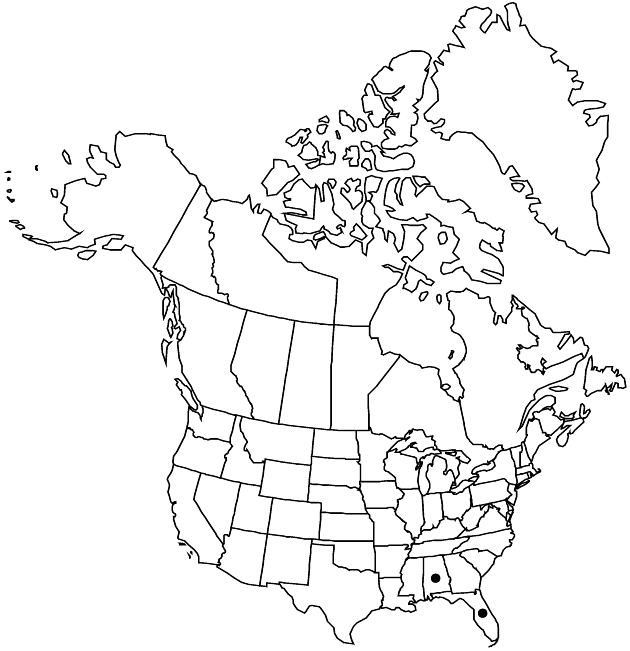Pluchea sagittalis
Bol. Soc. Argent. Bot. 3: 36. 1949.
Perennials, 50–200 cm; fibrous-rooted. Stems minutely hirtellous to strigillose and sessile-glandular (winged by decurrent leaf bases). Leaves sessile; blades usually lanceolate to lance-elliptic (proximal sometimes spatulate or oblanceolate), mostly 5–15 × 1–3(–4) cm, margins shallowly and closely toothed, faces minutely hirtellous to strigillose and sessile-glandular. Heads in corymbiform arrays. Involucres hemispheric to cupulate, 4–7 × 8–10 mm. Phyllaries greenish to cream, ± stipitate-glandular (outer oval-oblong to linear-attenuate). Corollas white or rose-purple. Pappi persistent, bristles distinct. 2n = 20.
Phenology: Flowering Jul–Aug.
Habitat: Moist or wet, open habitats, ballast deposit areas
Elevation: 0–10 m
Distribution

Introduced; Ala., Fla., West Indies, South America.
Discussion
Pluchea sagittalis is adventive, probably a waif; it was collected as a ballast weed by C. Mohr near Mobile (1891, 1894, 1896) and by A. H. Curtiss near Pensacola (1886, 1901).
Selected References
None.